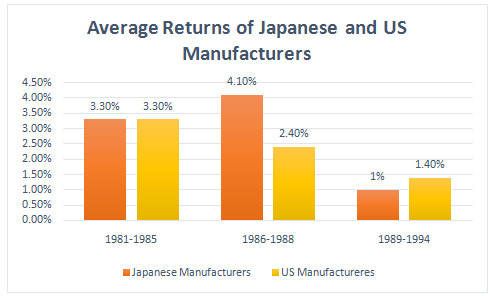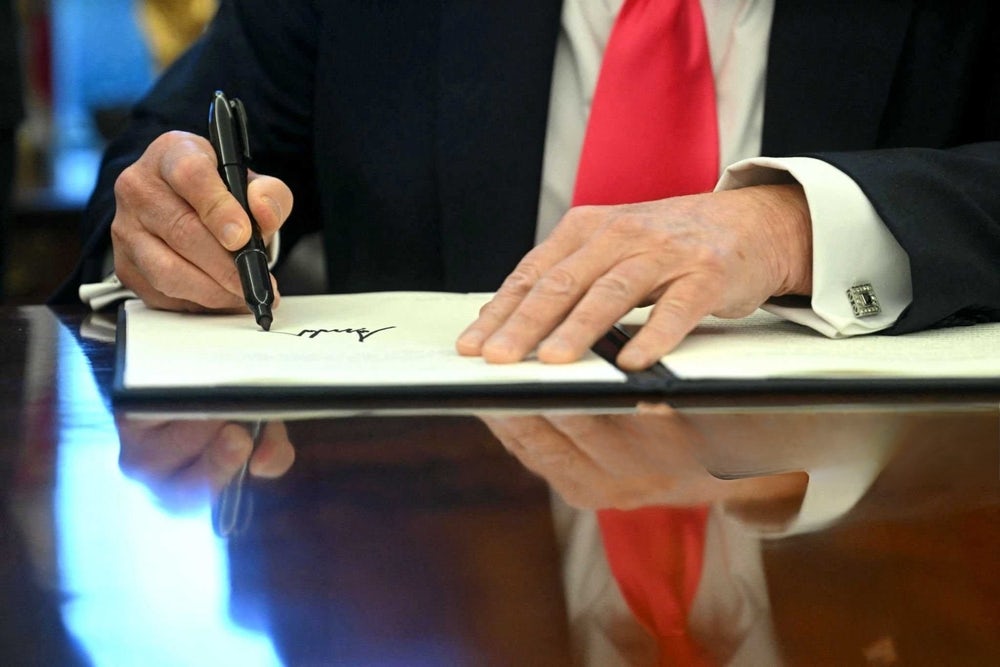The China Factor: Why Luxury Automakers Face Headwinds

Table of Contents
Intense Domestic Competition
The Chinese luxury car market is no longer dominated solely by international brands. The rise of domestic competitors and the intricacies of joint ventures pose significant challenges to established players.
Rise of Domestic Brands
Chinese luxury brands like Nio, Xpeng, and Li Auto are rapidly gaining market share. Their success stems from several key factors:
- Superior understanding of local consumer demands: These brands intimately understand the preferences and needs of the Chinese consumer, offering tailored features and services.
- Aggressive marketing and after-sales service strategies: They leverage innovative marketing techniques and provide exceptional customer service to build brand loyalty.
- Rapid technological advancements and innovative features: Chinese automakers are pushing the boundaries of technological innovation, offering cutting-edge features at competitive prices. This includes advancements in autonomous driving, electric vehicle technology, and connected car features.
- Leveraging government subsidies and incentives: Government support for domestic electric vehicle (EV) manufacturers provides a significant competitive advantage.
Joint Ventures and Partnerships
While joint ventures initially offered access to the Chinese market, they now present unique obstacles for foreign luxury automakers.
- Profit margin limitations due to shared ownership structures: Profit sharing arrangements can significantly reduce the profitability of luxury vehicle sales compared to operating independently.
- Potential conflicts regarding brand control and strategic direction: Differing visions between partners can lead to internal conflicts and hinder effective decision-making.
- Difficulties in adapting global strategies to the specific needs of the Chinese market: Global strategies often need significant localization to effectively resonate with the Chinese consumer. This requires careful consideration of cultural nuances and market-specific regulations.
Shifting Consumer Preferences
The preferences of Chinese luxury car buyers are rapidly evolving, demanding greater technological sophistication and cultural relevance from international brands.
Technological Innovation
Chinese consumers expect cutting-edge technology in their luxury vehicles. This includes:
- Demand for EVs and hybrid vehicles is surging: Environmental consciousness and government incentives are driving strong demand for electrified vehicles.
- Preference for advanced connectivity and infotainment systems: Seamless integration of mobile apps, advanced navigation systems, and sophisticated entertainment features are essential.
- Importance of seamless integration with local apps and services: Compatibility with popular Chinese apps and digital payment platforms is crucial for a positive user experience.
Brand Perception and Cultural Relevance
Luxury brands must adapt their marketing and branding to resonate with the unique cultural context of China.
- Need for localized marketing campaigns: Generic global campaigns often fail to connect with Chinese consumers. Tailored messaging and culturally relevant imagery are necessary.
- Importance of building relationships with key influencers: Leveraging KOL (Key Opinion Leaders) marketing is crucial for reaching target audiences.
- Understanding the evolving values and aspirations of Chinese luxury buyers: Luxury is no longer solely about ostentation; it’s increasingly about experience, technology, and social status.
Economic and Geopolitical Uncertainty
Macroeconomic factors and geopolitical tensions add further complexity to the challenges faced by luxury automakers in China.
Economic Slowdown
Concerns regarding China's economic growth and consumer spending directly impact luxury vehicle sales.
- Impact of fluctuating currency exchange rates: Currency volatility affects pricing and profitability.
- Uncertainty surrounding future economic policies: Policy changes can significantly impact the market and investment decisions.
- Potential decline in consumer confidence: Economic uncertainty can lead to reduced consumer spending on luxury goods.
Geopolitical Tensions
Trade wars and geopolitical instability create further uncertainty for international businesses in China.
- Potential for increased tariffs and trade restrictions: Trade disputes can lead to higher import costs and reduced competitiveness.
- Impact of political instability and regulatory changes: Unexpected regulatory changes can disrupt operations and investment plans.
- Challenges in managing supply chain disruptions: Geopolitical tensions can create significant disruptions to global supply chains.
Conclusion
The China factor presents a complex set of headwinds for luxury automakers. Intense domestic competition, evolving consumer preferences, and economic/geopolitical uncertainty require a strategic and adaptable approach. Luxury brands must prioritize technological innovation, localized marketing, and effective risk management to thrive in this dynamic market. Ignoring the China factor risks losing significant market share in a crucial region for global luxury vehicle sales. To succeed, a deep understanding of the Chinese market and a tailored approach are paramount. Successfully addressing the China factor, including understanding the nuances of domestic competition and shifting consumer preferences, will be crucial for long-term success in the global luxury automotive industry.

Featured Posts
-
 Canadas Leading Musicians A 2000 2023 Retrospective
May 29, 2025
Canadas Leading Musicians A 2000 2023 Retrospective
May 29, 2025 -
 Trumps Sanctions Against Wilmer Hale Overturned A Legal Victory
May 29, 2025
Trumps Sanctions Against Wilmer Hale Overturned A Legal Victory
May 29, 2025 -
 Zarcos Transformation Analyzing His Performance Improvement At The Circuit Of The Americas
May 29, 2025
Zarcos Transformation Analyzing His Performance Improvement At The Circuit Of The Americas
May 29, 2025 -
 Air Jordan Releases What To Expect In June 2025
May 29, 2025
Air Jordan Releases What To Expect In June 2025
May 29, 2025 -
 Bayrn Mywnykh Ela Aetab Alteaqd Me Jwnathan Tah
May 29, 2025
Bayrn Mywnykh Ela Aetab Alteaqd Me Jwnathan Tah
May 29, 2025
